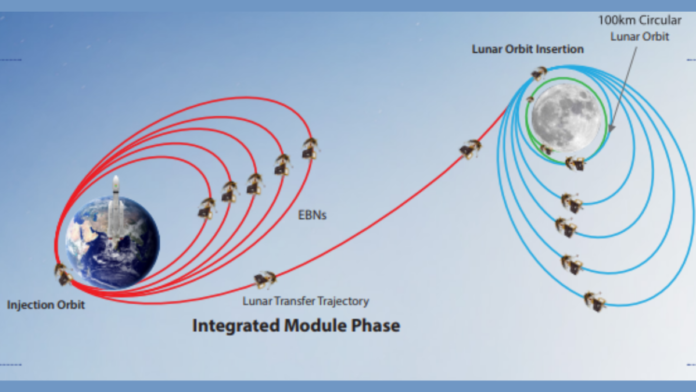India’s Chandrayaan-3 spacecraft is continuing its circuitous journey to the moon with a series of burns to raise its orbit.
Chandrayaan-3 launched on July 14 into an orbit around Earth and has been slowly boosting its orbit ahead of a final shot toward the moon.
The lunar spacecraft’s propulsion module completed a fourth orbit-raising maneuver on Thursday (July 20), the Indian Space Research Organisation (ISRO) stated. The engines fired at the spacecraft’s closest approach to Earth, raising its apogee, or the farthest point from Earth of its orbit.
Related: Chandrayaan-3: A guide to India’s third mission to the moon
“India celebrates the International Moon Day 2023 by propelling Chandrayaan-3 a step closer to the moon,” ISRO tweeted on Thursday.
The next firing is planned for between 2 and 3 p.m. India Standard Time (0830-0930 GMT; 4:30-5:30 a.m. EDT) on July 25, ISRO added. A translunar injection (TLI) burn will take place on July 31.
The maneuvers are part of Chandrayaan-3‘s low-energy approach to the moon that will see it attempt a landing on the moon on Aug. 23 or Aug. 24.
Chandrayaan-3 Mission:🇮🇳 India celebrates #InternationalMoonDay 2023 by propelling Chandrayaan-3 🛰️ a step closer to the Moon 🌖The fourth orbit-raising maneuver (Earth-bound perigee firing) is performed successfully from ISTRAC/ISRO, Bengaluru.The next firing is planned for… pic.twitter.com/XeuD5c06v1July 20, 2023
The mission is India’s second attempt to touch down on the moon, following the failed 2019 attempt made by the Chandrayaan-2 lander. The new mission has built on the lessons learned from the earlier landing attempt.
If touchdown is successful, the mission lander and rover will collect science data on the surface for up to 14 Earth days (a single day on the moon). The spacecraft are not expected to survive the deep cold of the lunar night.

